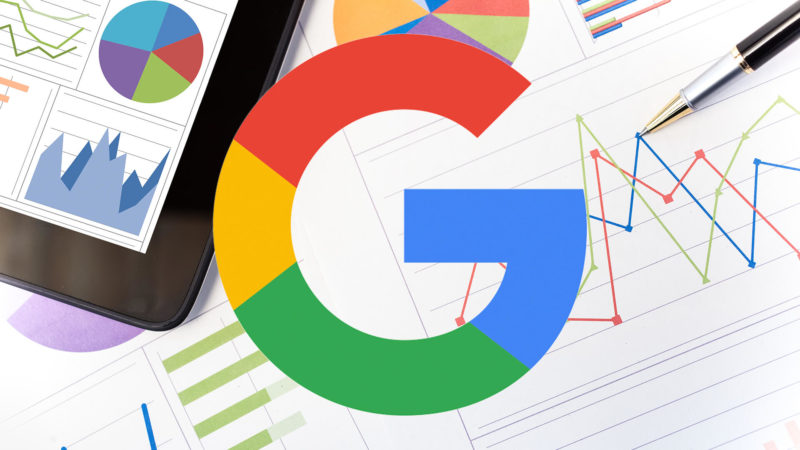Google Attribution: Is Google stepping in because no one else would?


Advertisers — especially PPC junkies — want to pay for the highest-converting, most relevant traffic possible. That’s been the obsession of our corner of the digital world for some years now.
Yet in other corners, key players have been roundly accused of taking a wait-and-see approach when it comes to advertisers paying for the least credible, most fraudulent ad impressions and clicks possible.
The problem isn’t an imaginary one. The industry remains plagued with ad platforms that make threadbare claims to effectiveness.
Google is now aiming squarely at both the opportunity and the problem — because most others won’t. They’re rolling out a free version of a powerful, unified marketing attribution solution (now called Google Attribution, available in beta to select advertisers).
Should the average marketer care?
As above-average marketers, I think we should care insofar as it makes our work more meaningful and more accurate. Make no mistake: these tend to be incremental wins nowadays. The big revolution is already behind us; whether through server log mining or users and sessions being tracked via cookies and other means, we’ve long had the data on hand to improve the accountability of advertising.
As Google points out in their “Hello Google Attribution” post, though, most advanced attribution tools are “hard to set up.”
Many advertisers, therefore, go with the default — last-click attribution — and try to use their imaginations as to what kind of ROI they’re “probably” getting “if only” they had better measurement. Not ideal.
When it comes to new customer acquisition in particular, last-click attribution too often assigns 100 percent of the credit to hangers-on in the process: Brand and Remarketing clicks. If, instead, we were able to sprinkle partial credit around to all the previous consumer touch points, we’d be living up to our boast of being “data-driven.”
The lack of (“de-duped”) unified channel reporting currently incentivizes siloed marketers to play adversarial games, pulling for their own channels. It also incentivizes each disparate publisher platform to bias their own conversion tracking in favor of — you guessed it — their own platform’s ad inventory.
So, will Google Attribution fix that? Hey, you in the back, I hear your cynical chuckle. What kind of ploy is this?
Google: Playing sheriff once again (because no one else will)
Yes, Google is self-interested. But often, their self-interest has been served by pushing for stronger industry standards, which in turn improves the user experience and nets Google a little respect. Just think of Google’s meddlesome, but ultimately welcome, interventions into https adoption, site speed and mobile-friendliness.
Nearly every decision Google has to make in the design of Google Attribution — neutral talk of “smart,” “machine-learning” and “data-driven” aside — will pick winners and losers. Not counting the impact of an impression if it wasn’t viewable, or a click if it didn’t behave in a way consistent with non-fraud, may discount nearly 100 percent of the impact of rival networks and publishers. Go figure.
But unless Google itself perpetrates massive and uncharacteristic fraud, these tools themselves will push Google, too, to police its own ad inventory across all Google-owned and partner channels.
Relying on a large monopolistic player to enforce “truth” on an industry is far from a perfect solution. You’d love it if industry bodies or even government regulators would provide some help in that direction. But in the absence of much leadership elsewhere, Google it is.
This is a long game. Even lukewarm responses over the next year from advertisers kicking these tires may be relatively meaningless if Google is onto something: that the future of advertising may well depend on something just like this. The next three or four years will determine whether this tool becomes a trusted industry standard like Google Apps for Business or Android.
Tip of the iceberg
Success — for robust spenders who play in multiple channels, who stand to benefit the most from improved understanding of how consumers are influenced by different touch points — will depend on Google taking this all the way.
Cautious versions of this same idea have been underwhelming to date. Most of the advanced advertisers I talked with, for example, aren’t seeing much difference when they toggle from model to model (Last Click, Position-Based, Linear, Time Decay, Data-Driven) in the recently released Attribution Models in AdWords.
Why? Largely because the various models only take account of AdWords clicks. Without information about all other channels (including organic search) in that mix, we don’t see much improvement in attribution accuracy. In that context, last-click attribution lives on as a reasonable option.
Some business models are ripe for better attribution models
Google Digital Marketing Evangelist Avinash Kaushik has counseled that advertising spending shouldn’t be a “faith-based initiative.” Yet in some industries, a lucky few instinctive players have gotten rich acting that way and throwing heavy spending at certain channels that “seem” to work. That works (for the lucky and instinctive) because many growth strategies are in fact hard to measure; the genius of the spend only becomes clearly obvious years or decades after the fact.
Long buy cycles pose a particular challenge for marketing attribution. Long research phases and tire-kicking are commonplace in B2B, but not only there. Let’s think about a business that has to win over consumers before they can have a conversation with certain suppliers. That big consumer spend is the unsung hero of the business, and that brand-building process takes place over a long period of time.
(Does the Trivago guy really pay for himself? That is not as easy to answer as it seems. What we do know for sure is: no Trivago guy, no company.)
Some companies with an engineering mindset inherently mistrust marketers and are happy when they can show definitive proof of poor marketing ROI. If you’re a PPC professional and you’ve worked for a high-tech startup, you’ve probably noticed that.
In a fight for resources, say the proponents of spontaneous word of mouth, shouldn’t product win? Is advertising truly a “tax for being unremarkable?” Come on! That’s jejune. (My answer would be that with the right investments in both product and marketing, resources wouldn’t be as scarce. As marketers, we need to be armed with better tools to demonstrate the impact of that budget. Although maybe it would be easier just to repeat the mantra, “No Trivago Guy, No Company.”)
Three potential outcomes of Google Attribution
Let’s turn to some likely impacts of Google Attribution if it works the way it should. Therein lies its genius — and its limitations.
First, moving credit around within the AdWords silo won’t help anyone hit the jackpot. But helpfully, it may reduce incentives for AdWords marketers to overspend on last-click-seeking interactions within AdWords. Some PPC managers (shhh!) overspend on remarketing audiences only as a form of retaliation for misleading conversion-sniping that goes on in other channels.
[Read the full article on Search Engine Land.]
From our sponsors: Google Attribution: Is Google stepping in because no one else would?



